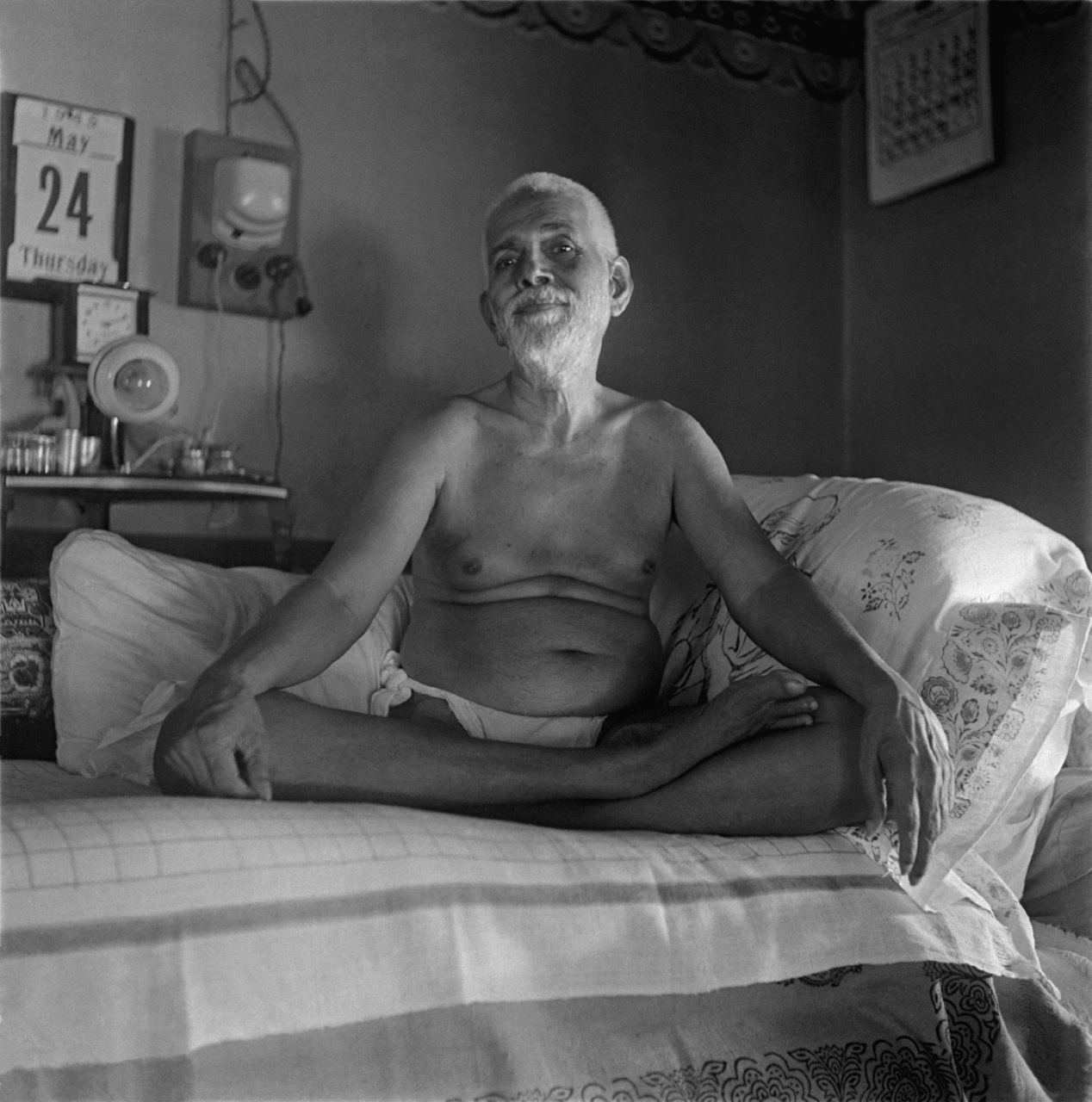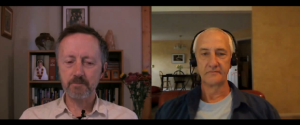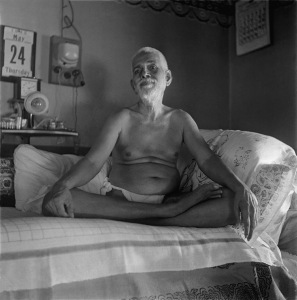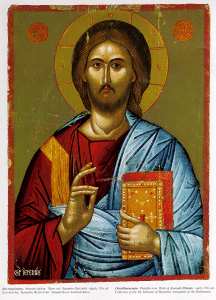I was recently filling up my motorcycle at Buddha at the Gaspump, a great newish website of interviews with spiritual people, run by Rick Archer, when I came across his great interview with David Godman. David, who lives at Tiruvannamalai in India is the primary editor of information in English on the great 20th Century sage Sri Ramana Maharshi. In fact most of what we know about Sri Ramana is thanks to David’s editing and publication of translations of various tamil works, and his tireless and continuing efforts in seeking out and recording the stories of those who knew Ramana when he was alive. He is also a key compiler of books about the spiritual careers of Ramana’s disciples such as HWL Poonja and Nisargadatta Maharaj, who are now all big names in advaita.
David does a good job in the interview of quoting from memory the words of those with higher spiritual authority than himself, rather than offering his own views on things, but towards the end of the two hours Rick pushes a little harder to try and get an answer to the question of what enlightenment actually is. It is not surprising that this line of questioning quickly leads us into a quagmire of contradictory evidence. What at first seems like such a simple objective – to define enlightenment – is actually very elusive. After all, if it could be defined, then we could all go out and find who has it, and get some of it. That would be a rational approach.
There are many conflicting statements on the matter, even those given by high authorities like Ramana and Poonja are contradictory. On the one hand, statements by Ramana speak of only a handful of ‘fully’ enlightened souls in the world, and he confirmed the enlightenement only of a couple. Poonja said to many of his followers that they were ‘enlightened’, but later listed to David only a handful of people as ‘fully’ enlightened. Nisargadatta Maharaj seemed to consider a slightly different set of people to be enlightened. These three saints who are normally considered to be enlightened were very different people and so our definition of enlightenment would seem to encompass quite different human manifestations.
If enlightenment is very rare, then this contradicts the mission of buddha at the gaspump, which is about interviewing ‘ordinary spiritually awakening people’, who clearly need to be in some abundance in the world if there is to be any material for interviews. So Rick was keen to establish in the interview whether we really should go by the ‘Gold Standard’ of enlightenment exhibited by Ramana himself, in which case there might be no-one alive today who is enlightened. David seems to hold this view, although expanding it a little to include a handful of immediate disciples and saints associated with Arunachala, including Poonja and Nisargadatta. But even with this narrow circle, David is forced I think to accept a definition that allows different degrees of enlightenment or different manifestations of it. And once we establish a spectrum of awakening experiences, this might well open the door to extend the concept right down to include ‘everyday enlightenment’ experiences which are rather more common, as Rick would have us do.
Ramana himself said that it was the calmness of mind one felt in their presence, and the equanimity shown to others which were marks of an enlightened person. Certainly it was this that most new visitors to the ashram used as confirmation that Ramana was in possession of that state. But perhaps if we allow different manifestations of enlightenment then it need not always be so. Following this line of reasoning, Rick asked if enlightenment can’t be linked to any particular set of personal characteristics, then might it be possible for a murderer to be enlightened? After all, even when we have a tight definition of enlightened, there are examples of what would be considered ‘bad’ behaviour – even Nisargadatta was a chain smoker and grew agitated when he gave up smoking, likewise Poonja seems to have been a sort of terrorist at some point. David gives an explanation of body karmas playing themselves out after enlightenment – but I think it is still a good question to ponder given that we traditionally judge our spiritual leaders largely by their morality.
So if it seems like different gurus are using different yardsticks to measure enlightenment in others, how can we begin to measure it in ourselves? Is the answer to “am I enlightened” always either yes or no? Or if there are grades of enlightenment how are we to place ourselves on the spectrum? Isn’t the introduction of some kind of spiritual scoreboard against the whole idea of equality of all beings? Yet this concept is built into ideas of karma, which themselves underlie the caste system. And it is not like it is easy to improve our score – when raising the question of effort David points out that Ramana – the most fully realised modern guru by many estimations – seems to have realised his enlightenment without making any real effort at all (in this life). And yet the whole point of talking about enlightenment seems to be that we are seeking to get closer to it, to attain it, by our efforts.
The rational person at this point will likely throw their hands up in the air and despair. It seems that enlightenment cannot be defined. We cannot decide even if it exists in degrees. And any effort to attain it may well be pointless. And even those who have attained it may or not be nice people whom we would wish to emulate anyway.
At this point I would like to take a break for a moment and look at the question from another perspective.
Part 2
I would like to pull the reader back from the brink of despair. In my last post I think I demonstrated that enlightenment is hard to define, if we are looking for outward signs of it in the world. If something has no definable outward signs in the world, our first and indeed most rational impulse might be to conclude that it does not exist. But I think it is possible to show that this is not the case. We need to change our perspective a little. I will show you what I mean.
Poetry does exist, in the form of poems. And Poets exist, as the people who write poems. But does poetry exist before poems and poets?
I think philosophers still argue as to whether things can exist apart from their outward signs, their forms, which define them. Socrates probably began this with his theory of the ideal form. It does seem possible that there might be a great poet who remains unknown because they never exhibit it by writing poems. The outward signs are missing but the truth is still there. Also we all tend to have subjective ideas about what poetry is so we might disagree on who the great poets are. However I think that the only ideal form which can exist perfectly, is that form which is no-form. This formless thing is the universal that is the attainment of enlightenment.
The existence of this universal form is implicit in the existence of anything. Yet being formless it exists apart from particulars. Poetry does inhabit forms such as poems and poets, however by their very definition it doesn’t inhabit poetasters. Enlightenment is different from poetry of course because as enlightenment is the antithesis of outward forms there is nothing that can be said to represent it. If it could be tied down to an outward expression it would not be enlightenment, but something else. At the same time, we needn’t expect it to occur as something evenly smeared across reality. Anything that can be described rationally can be ruled out as they are too much like a definition. Even if we were to define enlightenment as “that which cannot be defined” there is a logical problem, similar to the problem in the truth of the statement “this statement is false”. There are clues in these paradoxes of language and logic which point to the weakness of such structured reasoning to grasp at formless things. As a result, I think that some outward forms of enlightenment could be shown as more likely than others, even if they were not definitive. At the same time, enlightened people might exhibit none of these likely forms, without invalidating their enlightenment, just as it is possible to be both a great poet and yet display nothing of the ability.
I hope all that is not too confusing.
Great skeptics like to say that we might all be brains in jars. “How do I know that I have hands?” is how a traditional argument begins. The philosophy of skepticism strikes to the heart of enlightenment – just as the enlightened person contends that all the world is a dream, the skeptic asks how it is that anything can be really known.
The modern world has moved on from the doubts of the skeptic, and now mostly operates along pragmatic lines. A great tree of theory has grown which bears the fruits of science, humanism, and critical reasoning. But there is still a sourness to these fruits which can be traced to its roots where the doubts of the skeptic still fester. Scientists tear at their beards in frustration as their explanations of evolution are questioned by those who regard the bible as the ultimate truth, for instance.
Skeptics can explain why the seeds of doubt will never be expunged. The enlightened sage holds the key to this truth in his heart. In the smile of the enlightened one is the knowledge that the two worlds – the objective and the subjective – can never be reconciled from just one side or the other. Their reconciliation comes from understanding the play of tapas. Their union is deep and resides in the heart of the mystery that is life itself. It cannot be grasped by reasoning alone – nor alone by meditation.
We cannot say that poetry exists only as poems and poets, yet at the same time we cannot say that it exists apart from these things. The ultimate poetry is the movement of consciousness through the world – but this is going beyond poetry perhaps – into pure being and awakening.
In despair we look and look and enlightenment is never found. But the seeker cannot find herself in the world no matter where she looks. She is not in the body, not in the brain, not in the firing of a neuron. She is everywhere. Truth is ever elusive.
That is the beginning of some new kind of knowledge, I think.
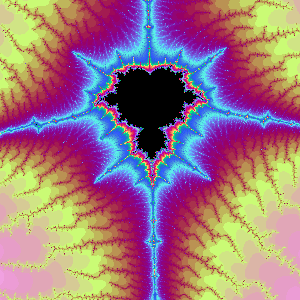
Part 3
Maybe I am slightly setting myself up as some sort of authority on enlightenment with these posts. Well that is not the case. I did try once, to be enlightened. But i noticed that the very idea was itself an impediment to enlightenment. So i cast off the idea and was left with life, just as it was before. Or perhaps it was not quite the same. For i no longer was seeking for ‘enlightenment’ but found that life itself was the seeking.
I was going to use this third part of my enlightenment series to come back to my favourite topic of science vs religion or logic versus emotion. I love these topics because i can’t decide which side I am on, and there is so much that is interesting about the line that divides these dualities. I think that life itself is a sort of unending battle between these dualities, and we need to rise above them. But how to do that? We inevitably find ourselves falling back into the habit of one or the other, and so setting ourselves against its opposite again.
But each side is tempered by the other. Let me start with religion. It annoys me when in discussing enlightenment we too quickly get into magical talking, everything is a dream etc – disregarding the 21st century and the advances of learning since which we have stopped all being barbarians to each other and dying horribly of various diseases. Because if you turn your back on science you are just opening the door to all the problems that we have had with religious belief ever since the beginning, that is religious ‘authorities’ take charge of human affairs because they are the sole owners of the ‘truth’. This is where we quickly find ourselves when talking about enlightened people. We clearly give them an authority over ourselves but since we can’t easily define enlightenment this opens the door to easy abuse by impostors. It is not just a matter of a few bad eggs– this can build up over time into an impenetrable system of orthodoxy which it is dangerous to speak out against. It has happened again and again through history and there are plenty of modern examples which are alive and well. Modern rational discourse and scientific advances have liberated much of humanity from this great evil but if we turn our back on these rational ways of thinking we will soon be back in the dark ages. This is my greatest bugbear I suppose about religion, at its core it has an irrational belief in some being or holy text or truth and this bleeds out into a hesitation to embrace rational explanations for things when a sloppy religious explanation will suffice.
But calm yourselves, religious types. I have a grudge with science too. It is that science is based on reasoned thinking and a finite world, and both those things have some big problems. I touched on it before with the brain in a jar argument – sorry if I’m breezing over this, i’ll expand again later – but basically it is impossible to be sure that we know anything. That is just how it is. We could all be in a big dream, that’s a fact, there’s no getting away from it. So Science is a pragmatic approach to life and knowledge about the universe but it is incapable of grasping all the answers. It is not a silver bullet for truth. Most importantly for most people, it can’t say what happens after death, and it can’t give us an answer to the ‘meaning of (my) life’ (or rather it says ‘nothing’ and ‘there is none’). Well, this is where science and reason fail, and they will always fail at this because it is not built into their design to be able to answer these things. So into the void of these questions comes religion, or I should say comes enlightenment, which is quickly manifest in organised society as religion. It is interesting that 19th century scientists had a much clearer idea of the limits of their power, and still held onto some idea that there were questions which reasoned inquiry was not suited to answer. But modern science has lost this deference and now sees itself as the sole arbiter of truth, and sees religion as just something people cling to in order to make them feel better.
This is a shame for enlightenment. This state of mind comes about from the training that scientists and we in the west generally have had for some time, which is to see the world in an objective way. If we see the world objectively, then truly science can explain perhaps everything – except human irrationality (although it does try to explain this too). It is essential to see the material world objectively if you want to understand it and control it. I also think an objective, rational viewpoint is the best way to run a fair society. But when we look at our own individual experience of life, it is impossible to be truly objective. For a start, we spend half our lives dreaming, or daydreaming. This material world comes and goes. At the time of your reading these lines you are in this material world foremost of all, for sure, but you will soon be departing it again. This viewpoint is anathema to science. Science must disregard dreams. In fact, science disregards people in a way, and only sees their bodies. Religion sees the dreams and puts them first, the world comes second. But each tries to rule the other. I have written about this in other posts.
Do we just accept that each rules their own realm? But where is the boundary.. it seems diffuse and hard to define.. anyway only a scientist would try to define it. Are they really part of the same phenomenon? Can each absorb the other? Science would say there is no room for religion.. and then tries in vain to eradicate it. Religion likes to claim that science is just a plaything, a toy, useful maybe, but ultimately unimportant. Just as surely as infinity exists, or zero exists, so also enlightenment exists. It doesn’t make much sense, but there it is, say the saints. But science shows that even the fully enlightened person is subject to the mundane realities of existence, maybe you can call it karma. Enlightenment agrees that nothing changes, everything is always as it was. I think it is fair to say that from a scientific real world perspective, enlightenment doesn’t actually exist. But reason can only ever paint half the truth. Ultimately at its limits, it finds contradiction and paradox. This is the clue. The clue that everything that exists is a dream.. miracles, true miracles which are very rare, are another clue.
Viewing life as a dream is an interesting experiment in enlightening our day to day existence. Dreams are the simplest example of a state of unknowing with which we are all familiar. All of us have inhabited dreams before, dreams which we were certain to be true. There is a lot of juice to be had in unravelling this idea. It is not a perfect analogy but I am going to work it a little more from a philosophical perspective.
If I was sitting a philosophy exam on the nature of reality in a dream and I wrote in that exam that ‘this world is a dream’ then I would probably fail the exam, despite being absolutely correct from the perspective of this world. But to my dream examiners I would be wrong, as my dream is their reality. Likewise in real life, it is just impossible for others to confirm our waking experience for us. Facts are no longer facts in dreams- in a dream it might be true that I can fly, whereas upon waking I find that it is no longer true. And on seeming to wake, one may continue to find one is dreaming, and so through infinite recursion of constantly awakening from dreams, our knowledge of things is severely reduced until perhaps all we know is that we cannot be sure of anything.
It seems foolish to me to grant special status to waking reality as the final state, from which no more waking is possible, when every other example of reality we have experienced has turned out to be a dream, dreams that at the time seemed to be real. The old story of the philosopher dreaming he is a butterfly and upon waking being unsure of if he is merely a butterfly dreaming he is a philosopher illustrates this point. It seems whimsical but there is a solid skeptical argument wrapped up in this funny story.
Unfortunately, the only sure test to find if we are dreaming is to end our life – for only after death will we find out whether there is anything to wake up to. But even if we find that there is something else, it could be yet another dream, so it is no solution to the ultimate problem of needing to wake up. This state of it being possible that we are dreaming, but it being impossible to know without waking up, is a bit like quantum mechanics – where it is possible that an electron exists at a certain place and velocity, but it is impossible to know without disturbing it. It might simply be a fact that reality as we thought it was simply can’t exist – that it shares its status with dreams as things we experience as real but might wake up from. I won’t take that analogy any further but I think it is an interesting one, and perhaps there is a mathematical solution.
I have found that people generally recoil at the idea that life is a dream. We don’t like having our certainties trashed. The first argument raised against life being a dream is that dreams seem fragmentary and ephemeral. But we are only comparing them to this life – which might itself seem ephemeral to some deeper wakeful state. Some argue that Ockham’s razor rules out the concept – why invent more worlds? But I would say that ockham would be happy, that there is actually no simpler explanation for things than the dream explanation. This is the argument the simplest universe is not the one which is smallest, but the one which is smallest to code – which has fewest exceptions – the so called Kolmogorov complexity (there is an interesting discussion about this here). So we could argue that a reality which always has a dreamlike quality is a simpler version of reality which has both dreams and a ‘root’ reality to support them. Another argument against the dream idea, used i think by Russell, is that it is a nihilistic one, as if we dream, then nothing in the world is worth striving for, and we might as well act amorally or do nothing at all. This is a good argument against acting as if the world is a dream, but it does nothing to disprove the idea that it actually is.
I think the answer to the final argument is that something must be worthwhile – and that something is awakening. Not in an ordinary sense, but one that takes us out of the entire slideshow of dreams and reality and puts us into another as yet unimaginable state. Obviously this escape from the treadmill of dreaming is simply what is generally termed ‘enlightenment’. It emerges naturally from the understanding that reality cannot be proven to be different from a dream, that waking either from a nights sleep, or from a life into the afterlife, is simply an ongoing process. If there is any alternative to the endless births and deaths, the karma treadmill, then it would fit the description of enlightenment – whatever the experience of enlightenment might be. So rather than look about for enlightened people as having certain characteristics, like human doorways to an ethereal world of bliss, instead think of the possibility of your own escape from an endless cycle of dreaming. What would be the clues?
On the whole i think they would be mundane, and deeply embedded in ordinary life. They are the holes which keep the spiralbound notebook together. The apple core whose seeds contain the clue to the tree.
It cannot be ignored that for many people their first foray into all this is through the experience caused by various mind altering drugs. Such experiences often seem to be about ‘awakening’ from a dream or experiencing a deeper reality. Drugs are clearly powerful things for the individual and for society to deal with. But they are also interesting because they prod at the very workings of consciousness which we still fail to understand. How is it that a drug taken in a dream could cause one to awake from the dream? The mechanism by which drugs work might reveals some interesting connections between consciousness and matter – connections which run in both directions.
Explaining drug experiences forces one to fall into either the science camp or the spiritual camp. For if mind is not contained in the body, if this is a dream, then why is it subject to these chemicals? I don’t think spiritual types should shy away from the question. If the roots of illusion are somehow tied to matter, then doesn’t this open the door to manipulating our travel through dreamspace through chemicals? This is exactly what psychonauts do. If we allow our dreams and hallucinations to be bearers of truth, then we can learn a lot about reality. If drugs became very sophisticated, then it might become possible to visit other time periods and dream universes through sophisticated chemistry or other manipulation at quantum scales. Maybe we are already doing this without being aware. The pixels on this screen have their origin in the movement of atomic scale actors. Virtual realities are dreams of a kind.
Nothing is lost by considering the world to be a potential dream state, yet there is much to gain. There is no need to update the laws of physics, or change immediately the ordinary pursuits of our life and of society. The dream does still remain intact. What changes is our attitude to the debris of consciousness – thoughts and the imagination gain a new footing. Their importance to our lives increases when we recognise them as signposts to genuinely new realities. I expect there is a lot to explore in the different degrees of wakefulness. We must ask what it means to be awake and to dream – or are they necessarily the same thing, only experienced differently? Only then can we talk sensibly about enlightenment.
If we accept that dreams are viable alternate realities then they become rich with significance. For instance, we assume that we are the only actors in our dreams, that they are created by us and experienced by us alone. If dreams have their own reality then this perhaps is incorrect. There are other entities in our dreams and they may not created by us. Just as there are other life forms in this world, so also in dreams. This may be why we cannot easily control dreams, they seem to have a life of their own. Certainly our most wakeful dream – this world – is one which we have limited control over. But wakefulness brings increased degrees of control over the dream state. We have all experienced some dreams where we are more like god the creator – willing the world into existence. I am interested in exploring the demi-dream states which mix this world and another, these seem to be analogous to the ‘semi-enlightened’ state, post satori bliss episodes. The nature of our thought landscape is also of heightened interest if we consider it to have a reality and populace all of its own.
Suppose we are one entity travelling through space and time, being born again and again, then all these ‘others’ in this life and in dreams are simply other manifestations of ourself. The laws of nature are also crafted by us, by the interplay of our actions, much like tracks on a lawn, the ‘desire lines’ made by the passing multitudes. Our consciousness extends further than we typically grant it, to stars and stones which seem inanimate to us. Ramana said indeed the stones are conscious.
But putting aside all these crazy ideas, which i post here to empty them out of my head where they cause havoc on their own, if anything good is achieved in accepting that we are potentially dreaming, it is the acceptance that further awakening is possible. To awaken we don’t use the tools of the world, of different states of dream and reality, but we find the one common identity in all dreams – the dreamer. If we follow this clue, the ‘who am I’ of introspective interrogation, then we can arrive at the ultimate condition and be enlightened. Thus spake a Sage.
